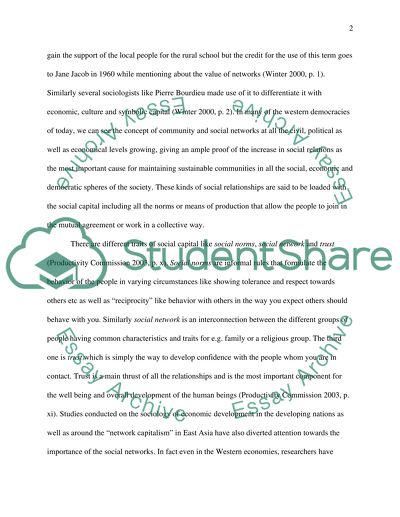Cite this document
(“Social capital Essay Example | Topics and Well Written Essays - 1000 words - 1”, n.d.)
Retrieved from https://studentshare.org/family-consumer-science/1409529-social-capital
Retrieved from https://studentshare.org/family-consumer-science/1409529-social-capital
(Social Capital Essay Example | Topics and Well Written Essays - 1000 Words - 1)
https://studentshare.org/family-consumer-science/1409529-social-capital.
https://studentshare.org/family-consumer-science/1409529-social-capital.
“Social Capital Essay Example | Topics and Well Written Essays - 1000 Words - 1”, n.d. https://studentshare.org/family-consumer-science/1409529-social-capital.


